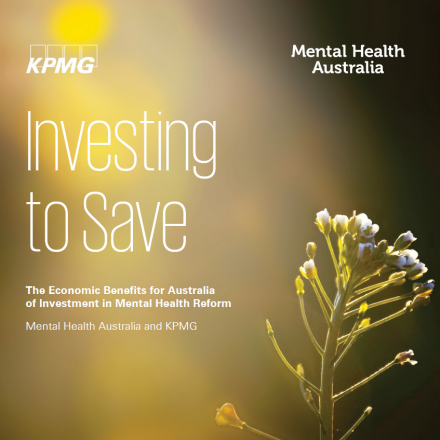CEO Update - Peer work is the future
Peer work is the future
Not peer work alone, not peer work to replace other practitioners, not peer work to save money on wages, but peer workers with a set of skills and expertise to work alongside other mental health workers in a wide variety of settings.
If peer work is to successfully deliver the kinds of outcomes suggested by the emerging literature, then governance arrangements for peer work becomes essential. What is peer work? Who gets to call themselves a peer worker? How are standards for peer work determined? How are peer workers supported in their training and ongoing development?
It ought to be no surprise that these are matters for peer workers to determine, and as the peer workforce is emerging in Australia, so too are the structures and processes that will be required to support this workforce.
You may have seen the recent ‘Peer Work Leadership Statement of Intent” which states a clear rationale for this work. The statement says, in part:
The Australian peer work leaders resolved to issue a ‘Statement of Intent’ that would communicate our intention to form a national professional association for the Australian mental health consumer peer workforce. We feel that such statement is necessary to provide the focus for national consultations to occur that will lead to the development of a peer-run organisation that can support and sustain the development of the peer workforce across all sectors.
The ‘Statement of Intent’ is supported by the international peer work leaders who attended the match – Gary J Parker, Executive Director Kansas Consumer Advisory Council for Adult Mental Health and Sherry Tucker, Executive Director Georgia Mental Health Consumer Network. Both Kansas and Georgia offer certified peer specialist training, certification and support.
I have been lucky enough to meet with Gary Parker on a number of occasions during his visits to Australia, and to hear first-hand about the success this work is having in the American system.
The statement also indicates an intention to establish an organisation to support this work:
A national peer work organisation is essential for our growing workforce and it would aim to support and develop our profession in similar ways to other professional bodies such as the Australian Psychological Society, the Australian Association of Social Work, Occupational Therapy Australia and the Australian College of Nursing.
Peer workers must lead the development of models of peer practice, so that our work retains its authenticity, mutuality and reciprocity in a diverse and expanding range of services and employment.
Professional certification of the peer workforce in both Kansas and Georgia allows peer specialists to claim Medicaid reimbursements for peer support services. In a similar way a national professional association of peer workers may allow the workforce to actively participate in the commissioning of mental health funding through Primary Health Networks (PHNs).
It is a truism to say that if this endeavour is going to be successful, it must be peer-led. But it is also true to say that any emerging activities require the support of various stakeholders right across the system if the early buds of hope are to grow into successful new branches in our mental health system.
I would encourage everyone to take the time to consider this important statement, and to reflect on the role that you might play in supporting this endeavour – whether as a peer, a colleague, a policy maker, or a funder.
We can all learn more here…
Frank Quinlan
CEO, Mental Health Australia




